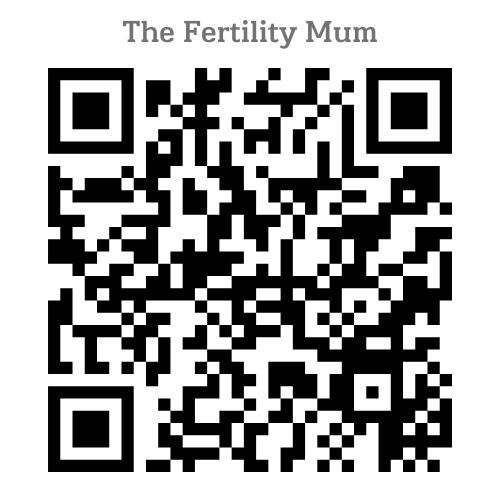
As we are on the countdown to the holidays, we are all swept up in the magic of Christmas: the lights, the food, the traditions, and, of course, the celebrations. But what happens when the usual celebrations don’t quite resonate with everyone in your family? What if your version of Christmas looks a little different than the norm, or you’re navigating the busy, sometimes stressful, juggling act of family life?
This Christmas, let’s explore how language can shape your holiday experience, creating an environment where everyone feels seen, heard, and celebrated — no matter what that celebration looks like.
Why Language Matters During the Holidays
Language is more than just words; it’s a powerful tool that shapes our thoughts, influences our emotions, and ultimately transforms our relationships. During Christmas, we often have an ideal of what Christmas "should" look like. These expectations can bring joy — or frustration — depending on how aligned we are with the way we communicate about them.
When we speak to ourselves and others in a way that reflects compassion, understanding, and flexibility, we allow space for personal expression and connection. This Christmas, language can do much more than just define your celebrations—it can redefine them to meet the needs of everyone in your family.
Creating a Celebration That Works for Everyone
We’re all different. As individuals, we have different ideas about what makes Christmas special. Some of us thrive on tradition, while others prefer a more relaxed or unique celebration. Parents may have specific ideas of how they want to enjoy their break, while children may wish to explore different aspects of Christmas, from Santa to crafts to family games.
This is where language becomes a game-changer. When we communicate with understanding and empathy, we open the door to creating a holiday that shares every family member’s vision. Instead of assuming that everyone must enjoy the same things in the same way, we can use language to express openness and curiosity, helping each person feel heard.
Here are a few ways you can use language to make your Christmas feel more inclusive, joyful, and less stressful:
- Speak with Intentionality: Instead of saying, “We always do this on Christmas,” try, “How would you like to celebrate today?” This simple shift in language invites conversation and gives everyone a voice in shaping the experience.
- Encourage Flexibility: Language that allows for change and flexibility can ease the pressures of trying to “do it all.” For example, “We might do this differently this year” or “Let’s try something new this Christmas” create an environment where it’s okay to let go of rigid traditions and make space for what feels right in the moment.
- Model Positive Communication: The way we speak to our families — especially during stressful moments — sets the tone for the entire Christmas experience. For instance, if something goes wrong, instead of saying, “Why can’t we get it right?” try “Let’s figure out how to make this work together.” These small shifts in language promote calm, cooperation, and shared problem-solving.

Solving Common Problems with Language This Christmas
Christmas celebrations can be full of challenges. From managing different expectations to handling family dynamics, the potential for stress can feel overwhelming. Language offers an incredible solution to some of the most common issues that arise:
- Managing Expectations: Sometimes, the pressure to have a “perfect” holiday can cause anxiety and disappointment. By discussing realistic expectations early on, families can avoid frustration. For example, using phrases like, “We may not get everything done, and that’s okay” can alleviate stress and promote a sense of calm.
- Preventing Misunderstandings: Language is also key in preventing misunderstandings. A lot of tension during the Christmas period comes from unspoken assumptions. Instead of assuming everyone wants to follow the same routine, ask, “What would make this day special for you?” A little curiosity can go a long way in preventing conflict and ensuring everyone feels valued.
- Fostering Connection: During the Christmas period, we can become so focused on the “to-do” list that we forget to check in with one another. Asking questions like, “How are you feeling today?” or “What would make you smile right now?” encourages emotional openness, helping families bond in ways that are deeper than just Christmas tasks.
- Reducing Stress: With so much to juggle — presents, meals, travel, and family visits — stress is almost inevitable. The good news is that language can help you stay grounded. Instead of “I don’t have enough time!” try, “What’s the most important thing I need to focus on today?” This shift helps you prioritise and stay present, reducing anxiety and increasing overall Christmas enjoyment.
A Better Christmas for All
Language isn’t just a tool for communication — it’s the bridge that connects us to the ones we love. This Christmas, embrace the power of language to create a celebration that reflects your family’s unique needs and desires. Whether you’re a parent trying to balance your children’s excitement with the demands of Christmas expectations, or someone looking for a way to bring more peace and joy to your home, the way you speak can transform your experience.
By speaking with intention, openness, and flexibility, you can make this Christmas one that’s not only unforgettable but also stress-free. You have the power to create your own version of Christmas, and it all begins with the words you choose to use.
This Christmas, create an environment where everyone feels included, celebrated, and truly heard. Through the power of language, your celebrations can be as unique as your family, and that’s the greatest gift of all.
From my unique house to yours, Wishing you and your loved ones a warm, happy, and language-filled Christmas!





